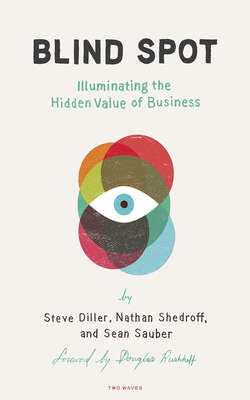Читать книгу Blind Spot - Nathan Shedroff - Страница 9
На сайте Литреса книга снята с продажи.
Blind Spots and Opportunities
ОглавлениеYou’ll find that this is just one of many blind spots that businesses have. In Comcast’s case, short-term profit is much more important than long-term relationships, and holding customers prisoner is the only acceptable corporate strategy. Comcast prefers to incentivize management and front-line employee alike to make it nearly impossible for customers to leave (although, ultimately, it’s no more difficult than a call to their credit card company to cancel the account) than to give its customers a reason to want to be customers for the long term.
This is just one way in which traditional business thinking has blinded its practitioners to reality. Relationships are the source of long-term value, not merely because it’s easier to keep an existing customer than to acquire a new one, but because satisfied customers help a business acquire new ones.
It’s really no different than personal relationships. While the healthy relationships you forge with friends and family are built more on emotional and meaningful value, the same is still true of relationships built on financial and functional value. For some strange reason, businesspeople have been told that only the short-term, financial value is worth building, but any wise businessperson knows this isn’t the case. Still, traditional business literature is rife with this contradiction.
Broadly speaking, everyone has at least some blind spots. This reference indicates an area of the retina (the inside back of your eyeballs), which has no light-sensitive rods and cones because it’s where all of the other optic nerves flow out of the eye and into the brain. This creates a small disc in your field of view that has no actual information, although your brains are facile in filling in the missing signals with assumed data that makes it seem like you’re getting a complete, seamless picture of our surroundings. You don’t really notice that you’re not really seeing some of the data around you.
Likewise, organizations often have blind spots that they don’t notice because their managements “fill in” what’s missing with alternative perspectives, or they ignore missing data because they can’t make sense of it themselves. Unfortunately, this process is often filled in with dogma and not experience. Unlike what our brains are capable of doing, these blind spots cause companies to miss important cues, obscure lucrative opportunities, and assume they have the complete picture when they’re leaving dollars on the table, because they never see what they don’t look for.
The blind spot we’re most interested in here has to do with what contributes to companies’ total value, namely, the building of relationships with customers Without seeing relationships for what they are—a mutual appreciation built on sequences of pleasing customer experiences over time—organizations miss what is often the single most important opportunity to build their total value (see Chapter 2, “Defining a Business Relationship,” for more information).
